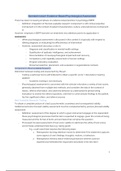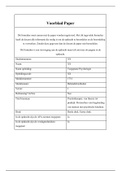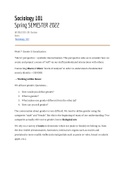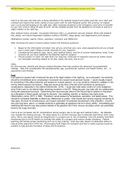Samenvatting
Summary Measurement Theory and Assessment 1 // Meten en Diagnostiek 1 (Vrije Universiteit) Article Summaries - Year 1, Period 4
Hey! Having trouble reading the scientific articles prescribed by S.M. Begeer? No worries! I read and summarized the scientific articles so you don't have to :) The following document includes these article summaries: - Bornstein (2017): Evidence-Based Psychological Assessment - Geisinger: Psych...
[Meer zien]









